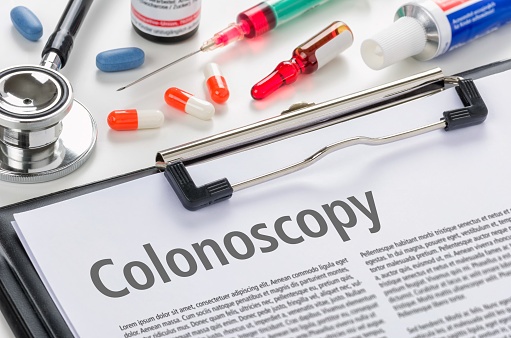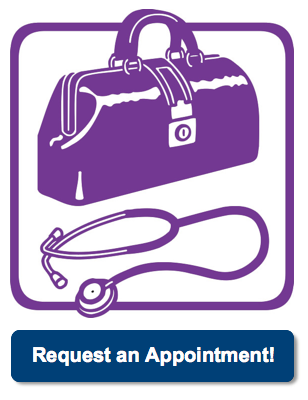
1. Firstly, what is colorectal cancer? We’ll use the National Cancer Institute’s definition:
“Colorectal cancer is a disease in which abnormal cells in the colon or rectum divide uncontrollably, ultimately forming a malignant tumor. (The colon and rectum are parts of the body’s digestive system, which takes up nutrients from food and water and stores solid waste until it passes out of the body.) Colorectal cancer is the third most common type of non-skin cancer in both men (after prostate cancer and lung cancer) and women (after breast cancer and lung cancer). It is the second leading cause of cancer death in the United States after lung cancer. In 2016, an estimated 134,490 people in the United States will be diagnosed with colorectal cancer and 49,190 people will die from it (1).”
2. Colorectal cancer is a serious risk and screenings are recommended for most people once they reach the age of 50.
After age 75, your doctor will determine whether or not continual screenings are recommended. After 86, the USPSTF does not recommend routine screenings. People who are at increased r
isk for colorectal cancer (people who have a family history or other medical risk) may start having screenings before they are 50. Your doctor will let you know if they think you might be at increased risk.
3. There are a number of different types of tests which can find cancer and pre-cancerous indications.
Colonoscopies, where the doctor can view the entire colon and rectum, are one of the most common and well-known tests. These are recommended once every ten years.
Virtual colonoscopies are less invasive and the patient does not need to be sedated. They need to be done every five years.
Flexible sigmoidoscopies are procedures where the doctor can view the rectum and the lower part of the colon. The patient does not need to be sedated and these are recommended every five years.
There are also two different types of stool tests – Fecal Occult Blood Test and Stool DNA Tests – which can detect cancers. They are not effective at detecting some precancerous signs. These can be done every year.
4. For some colorectal cancer screenings, you may need to change your diet before the test.
For colonoscopies, you need a thorough cleansing of the colon. A few days before the procedure, you will need to eat a low fiber diet – not many whole grains, fruits, or vegetables. The day before the colonoscopy procedure, you cannot eat solid foods, only clear liquids like water, apple juice, broth, black tea, or coffee. The night before the procedure, you will need to drink half of the bowel prep solution your doctor provides for you. Be warned – this solution will trigger diarrhea! We recommend staying near the bathroom – clear your schedule and bring a book or your laptop with you! The next morning, you have to drink the rest of the solution and follow the same rules. Stay near the bathroom. This is time-consuming and inconvenient, but it’s WAY better than having cancer! Sigmoidoscopies also require bowel cleansing, but it is less extensive than for a colonoscopy. Your doctor will tell you how to prepare for one. Stool tests do not require any colon cleansing, although they may require some dietary restrictions.
5. Your doctor will help you decide which screening test is right for you.
Since your doctor has the most information about your medical history, family history, and general health, they will be best suited to choose the screening test. Certain types of screenings may be covered by your insurance and some may not be, so your doctor will help you determine that.
Check out some of our sources for more information about colorectal cancer and colorectal cancer screenings: Preventcancer.org, Cancer.gov, Cancer.org, and health.harvard.edu.
Thinking you may need to be screened for colorectal cancer? DMC Primary Care has many primary care providers and we are always accepting new patients! Click below to book an appointment with one of our providers who will help you decide which screening method will best suit your needs.


